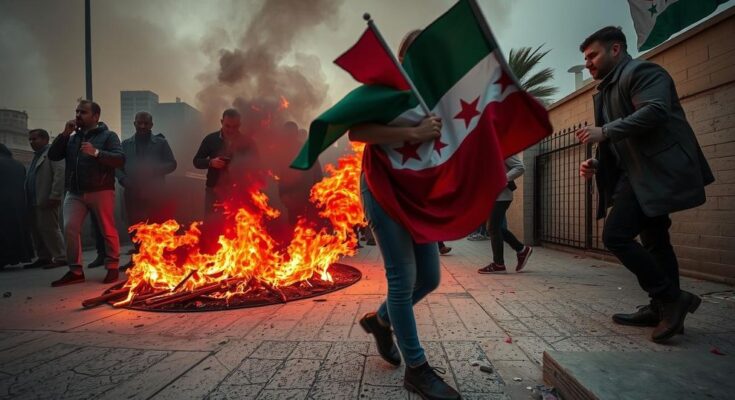The OHCHR reports alarming human rights situations in Syria, with violence against the Alawite community; a significant rise in executions in Iran, including political dissenters; and a positive legislative change in the Central African Republic, protecting human rights defenders. The UN emphasizes adherence to international humanitarian laws and opposes the death penalty. Meanwhile, CAR’s new law marks a vital step towards empowering civil society and promoting democracy.
The recent events highlighted by the Office of the United Nations High Commissioner for Human Rights (OHCHR) shed light on troubling situations in Syria, Iran, and the Central African Republic (CAR). In Syria, the Alawite community faces targeted violence amid growing tensions following the regime change. The OHCHR has called for restraint and adherence to international humanitarian laws to protect minority groups. In Iran, a surge in executions, particularly for drug-related offenses and dissent, has raised alarms about human rights violations. The UN holds a firm stance against the death penalty, arguing it poses an unacceptable risk of wrongful executions. Conversely, in CAR, a new law enhancing the protection of human rights defenders has been celebrated, marking a positive step towards supporting civil society and promoting human rights. This legislation delivers crucial safeguards for those safeguarding fundamental rights in a region plagued by instability.
In summary, the UN’s observations in Syria, Iran, and CAR reflect varied human rights issues: the urgent need for protection of minorities in Syria, a concerning escalation of executions in Iran, and a commendable advancement in human rights protection in the Central African Republic. The international community must prioritize these challenges to uphold human dignity and foster peace.
The report presented by the OHCHR urges attention to significant human rights transgressions occurring in Syria, Iran, and the Central African Republic. In Syria, following regime changes, increased violence against the Alawite community, a minority group, has emerged, prompting calls for international adherence to humanitarian principles. In Iran, a dramatic rise in the number of state-sanctioned executions, particularly among political dissenters and vulnerable populations, necessitates urgent scrutiny from global human rights advocates. On the other hand, the adoption of protective legislation in the Central African Republic showcases a critical advancement in safeguarding human rights defenders, underscoring the importance of protecting civil activism and institutional reforms in underscoring democratic values.
In light of the recent developments globally, the situations in Syria and Iran exemplify crises in human rights that necessitate immediate intervention by the international community. The OHCHR’s recommendations for protecting minority rights in Syria and opposing the death penalty in Iran must be taken seriously to mitigate the risk of further violations. Conversely, the positive step taken by the Central African Republic in legally shielding human rights defenders offers a glimmer of hope, underscoring the potential for legislative action to support and enhance civil society’s role in promoting human rights.
Original Source: news.un.org




